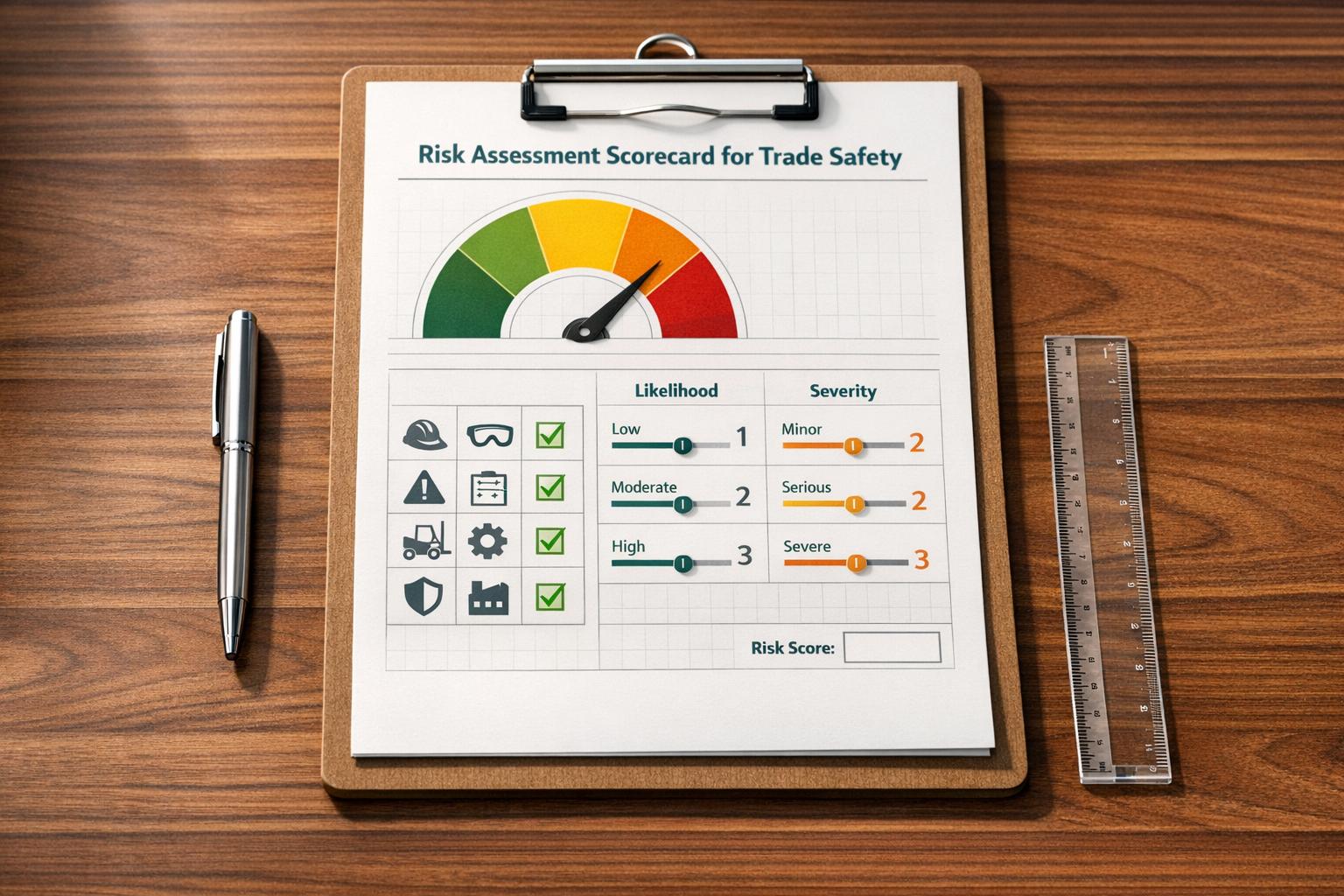Global sanctions are reshaping how credit insurers operate, creating challenges in risk evaluation, compliance, and claims management. These restrictions, imposed by governments or organizations, complicate international trade and disrupt financial stability. Credit insurers face hurdles such as navigating conflicting regulations, tracking ever-changing sanctions lists, and managing claims tied to restricted transactions.
Key points to know:
- Sanctions disrupt trade and payment systems, increasing non-payment risks.
- Compliance is critical but difficult due to conflicting jurisdictional requirements and evolving sanctions.
- Insurers are turning to automated tools and expert guidance to monitor changes and manage risks.
- Underwriting now involves deeper assessments of geopolitical conditions and industry-specific risks.
- Tailored insurance solutions, like Accounts Receivable Insurance, help businesses address both credit and sanctions-related risks.
This evolving landscape demands a mix of advanced technology, specialized expertise, and flexible policy structures to ensure compliance and financial stability for credit insurers and their clients.
Sanctions in Trade Finance Masterclass: Impact on Trade Finance Products
Recent Global Sanctions and Key Developments (2024–2025)
The latest shifts in global sanctions reveal the growing complexities that credit insurers face today. These changes push insurers to rethink how they manage risks, structure policies, and handle claims. With regulatory landscapes constantly evolving, insurers must stay ahead by fine-tuning compliance protocols and reassessing their exposure to international trade risks. Success in this environment hinges on flexible risk management and well-defined compliance strategies.
US Sanctions and Export Controls
The United States has tightened its export controls, particularly in the technology and energy sectors, significantly impacting cross-border trade. Credit insurers are ramping up their due diligence processes to ensure every transaction aligns with US regulations. These stricter controls demand heightened attention to compliance, as even minor oversights can lead to severe penalties.
EU and UK Sanctions Frameworks
In Europe, the European Union’s updated sanctions require credit insurers to sharpen their risk assessment methods. Similarly, the United Kingdom’s targeted sanctions necessitate tailored, jurisdiction-specific evaluations. While improved coordination between EU and UK authorities has helped bridge some regulatory gaps, insurers still grapple with challenges stemming from differences in how and when these rules are implemented.
The Role of Political Instability
Adding another layer of complexity, global political instability continues to influence sanction policies. Geopolitical tensions often lead to rapid policy changes, leaving little time for insurers to adapt. These fast-moving developments require credit insurers to embrace more dynamic strategies, as shifts in sanctions can quickly disrupt international trade and economic stability.
Compliance Challenges for Credit Insurers
Credit insurers face a tough balancing act as they work to stay aligned with shifting international sanctions while maintaining effective compliance systems. Below, we dive into some of the key hurdles they face and the strategies they employ to tackle these challenges.
Managing Conflicting Jurisdictional Requirements
When insurers operate across multiple regions, they often encounter clashing regulatory standards. For example, what complies with U.S. law might not meet the requirements in Europe or other jurisdictions. Cross-border transactions can add another layer of complexity, as insurers must navigate differing sanctions frameworks and timelines. To manage this, some insurers assign dedicated teams to specific jurisdictions, though this approach can drive up operational costs. Others choose to apply the strictest standard uniformly, which, while safer, can stifle underwriting flexibility and limit growth opportunities. Staying on top of these conflicting requirements demands constant vigilance and monitoring of changing sanctions lists.
Keeping Up with Sanctions Lists
Sanctions lists are anything but static. They can change rapidly, especially during times of geopolitical unrest. Insurers must keep track of updates from bodies like OFAC, the EU, and the UK, ensuring their policies, applications, and claims processes are adjusted in real time. The speed of these changes makes manual monitoring a challenge, leading many insurers to adopt automated tools. These systems help streamline compliance efforts and reduce the risk of missing critical updates, which could otherwise result in costly mistakes.
Building Strong Due Diligence Processes
Sanctions compliance goes well beyond simple name checks. It often involves untangling complex ownership structures, analyzing supply chains, and identifying hidden intermediaries. To handle this, insurers increasingly rely on advanced analytics and bring in specialized legal and investigative expertise. While these efforts can raise operational costs, the risks of non-compliance – including hefty penalties and reputational damage – make them essential. Regular monitoring and periodic policy reviews are key, especially as business relationships and regulations continue to evolve.
Impact on Risk Assessment and Underwriting
Sanctions aren’t just a compliance headache – they’re reshaping how insurers assess risk and approach underwriting. With stricter regulations in place, insurers have been forced to adjust their risk models to keep up. The once-reliable methods of evaluating risk now have to account for fast-changing geopolitical dynamics, introducing new challenges in pricing policies and managing exposure.
Higher Non-Payment Risks
Sanctions disrupt payments on a large scale, often with immediate effects. When trade restrictions target a country or specific companies, the consequences ripple through supply chains and payment systems. Banking restrictions frequently block legitimate transactions, leaving exporters unable to collect what they’re owed.
Then there’s the added complexity of secondary sanctions. Even businesses that aren’t directly sanctioned can find themselves unable to pay if their banks, suppliers, or customers are affected. These interconnected risks expose gaps in traditional risk models.
Political instability compounds the problem. Currency devaluations, capital controls, and economic turmoil can make even financially stable buyers unable to fulfill their obligations. Today, credit insurers must look beyond a buyer’s financials to assess the geopolitical conditions of their entire operating environment. This shift demands a more thorough and dynamic approach to underwriting.
Changing Underwriting Practices
Underwriting has evolved to keep pace with these heightened risks. Insurers now conduct enhanced country risk assessments that dive deeper than traditional economic data, incorporating factors like political stability, the likelihood of sanctions, and regulatory challenges.
Certain industries – such as energy, technology, defense, and financial services – now face closer scrutiny due to their frequent involvement in sanctions regimes. Underwriters need a clear understanding of not just what a company does, but how its operations could intersect with restricted activities or entities.
To handle high-risk transactions, many insurers have introduced tiered approval processes and formed sanctions committees to evaluate politically sensitive coverage decisions. Policies tied to buyers in countries with elevated sanctions risk often require sign-off from senior underwriters and may include specific exclusions or reduced coverage limits.
Pricing has also adapted. Risk premiums now fluctuate based on geopolitical developments, and some insurers have added sanctions escalation clauses to policies. These clauses allow mid-term adjustments if the risk environment changes significantly. These refined underwriting practices are setting the stage for more stringent claims management processes.
Claims Management Under Sanctions
Handling claims tied to sanctions-related events presents unique hurdles that go beyond typical non-payment scenarios. For example, verification requirements become more complicated when sanctions disrupt communication channels or when non-payment is tied to restricted banking relationships rather than buyer insolvency.
Claims teams must carefully distinguish between non-payment caused by sanctions and traditional buyer insolvency. This often involves investigating the specific restrictions impacting the transaction and determining whether alternative payment methods were feasible.
Recovery efforts are another challenge. Insurers must ensure their collection activities don’t violate sanctions, often accepting lower recovery rates or longer timelines to stay compliant.
The documentation needed for sanctions-related claims is also more demanding. Insurers typically require proof of the specific sanctions that caused the payment delay, evidence that the buyer attempted to pay through permitted channels, and confirmation that no alternative options were available. These requirements are even stricter when communication is limited by sanctions.
For businesses seeking protection in this complex environment, Accounts Receivable Insurance offers tailored solutions. These policies address both traditional credit risks and the emerging challenges linked to sanctions, providing companies with the tools they need to navigate the intricate overlap of trade credit insurance and international regulations.
sbb-itb-2d170b0
Solutions for Managing Sanctions Risks
Navigating the complexities of modern sanctions requires more than just traditional risk management methods. Credit insurers need a mix of cutting-edge technology, expert insights, and tailored insurance products to effectively address these challenges.
Leveraging Compliance Technology
Advanced compliance tools have become essential for managing sanctions risks in real time. Automated screening systems now integrate key sanctions lists, such as those from OFAC, the EU, and the UN, and continuously update as new restrictions emerge.
Using artificial intelligence, these platforms can detect potential matches, even when names vary. They’re also equipped to flag transactions involving indirect ownership structures, where a sanctioned individual might control a company through multiple layers of ownership.
Continuous monitoring plays a critical role by identifying sanctions-related changes throughout the policy period. When new sanctions are imposed, these systems automatically review portfolios to pinpoint affected policies and buyers. This enables insurers to act quickly, ensuring compliance and adjusting coverage where necessary.
Additionally, transaction monitoring tools can detect unusual payment behaviors that may indicate sanctions evasion. For instance, routing payments through third-party countries, sudden shifts in payment methods, or unexpected requests to alter beneficiary details can all signal potential compliance risks requiring immediate attention.
While technology is vital, pairing it with expert guidance enhances overall compliance strategies.
Partnering with Global Experts
The fast pace of sanctions changes makes external expertise indispensable. Legal advisors specializing in sanctions can help insurers interpret new regulations and their implications.
Many insurers also collaborate with government relations specialists who maintain direct communication with regulatory agencies. These experts can provide early warnings about potential sanctions changes and clarify how new restrictions might impact operations.
Regional expertise is especially valuable in navigating complex geopolitical situations. Local legal counsel in affected areas can explain how international sanctions interact with domestic laws, helping insurers avoid legal conflicts across jurisdictions.
Participation in industry associations and information-sharing networks is another effective way to stay ahead of sanctions developments. These groups enable insurers to exchange intelligence about emerging risks and coordinate responses to new sanctions, fostering a deeper understanding of the evolving landscape.
By blending expert insights with technology, insurers can create tailored solutions to meet their clients’ needs.
Tailoring Insurance Solutions
Standard insurance products often fall short when addressing sanctions-related risks, making customization a necessity. For example, Accounts Receivable Insurance can be tailored to address both political risks and disruptions tied to sanctions.
Custom policies often include sanctions exclusion clauses that clearly outline what is and isn’t covered. These clauses are designed to protect legitimate business activities without resorting to blanket exclusions, offering coverage for transactions that meet licensing requirements.
Political risk endorsements can expand traditional credit insurance to cover risks such as payment delays caused by government actions, currency restrictions, or banking limitations. This creates a bridge between commercial credit risk and political risk, offering businesses more comprehensive protection in volatile environments.
Flexible policy structures provide another layer of adaptability. Instead of canceling coverage outright, insurers can adjust terms, limits, or exclusions mid-term to ensure compliance while maintaining as much protection as possible.
Finally, pre-approved transaction frameworks simplify underwriting for repeat business in sensitive regions. These frameworks establish clear criteria for acceptable transactions, enabling faster approvals while maintaining robust risk controls.
Conclusion: Managing Sanctions for Financial Stability
The challenges posed by an ever-changing sanctions landscape demand both immediate attention and long-term planning from credit insurers and their clients. As global trade continues to shift under the weight of geopolitical tensions, managing these complexities has become a fundamental business skill – not just a compliance obligation.
To stay ahead, credit insurers are turning to tools like automated screening, continuous monitoring, and expert guidance. These tools allow them to respond quickly to new restrictions, ensuring they meet regulatory requirements while keeping operations running smoothly. While AI-based screening systems excel at analyzing large datasets and identifying potential risks, they can’t replace the value of human expertise. Interpreting nuanced regulations and addressing jurisdiction-specific challenges still relies heavily on human judgment. This combination of technology and human insight equips insurers to make well-informed decisions without sacrificing efficiency.
In this evolving environment, standard insurance policies often fall short. Tailored solutions, such as Accounts Receivable Insurance, offer the flexibility needed to adjust coverage terms and include political risk endorsements. These customized approaches help strike a balance between protecting clients and meeting compliance demands.
As geopolitical tensions persist, the sanctions landscape will only grow more intricate. Credit insurers that implement strong compliance protocols, conduct thorough risk assessments, and offer tailored policies will be better positioned to help their clients maintain financial stability. The ability to adapt coverage terms quickly while ensuring compliance will remain a key differentiator for successful insurers. In this climate, having strong, flexible strategies is no longer optional – it’s essential for navigating the road ahead.
FAQs
How do global sanctions affect credit insurers’ risk evaluation and policy decisions?
The Impact of Global Sanctions on Credit Insurance
Global sanctions play a major role in shaping how credit insurers evaluate risks and design policies. To stay compliant, insurers meticulously screen clients and transactions for any connections to sanctioned entities or regions. This involves adopting more rigorous due diligence measures to prevent legal, financial, or reputational fallout.
Heightened geopolitical tensions – like the sanctions imposed on Russia – have prompted insurers to adopt more cautious underwriting strategies. Policies are frequently adjusted to account for increased risks, such as non-payment or political instability, ensuring businesses are safeguarded whether they operate locally or internationally.
How do credit insurers navigate conflicting international sanctions and regulatory requirements?
Credit insurers navigate the complexities of conflicting international sanctions by putting in place strong compliance programs. These programs are designed to tackle the challenges head-on through detailed sanctions screening processes, ongoing risk evaluations, and strict alignment with regulations like those issued by the Office of Foreign Assets Control (OFAC).
To ensure smooth operations across various jurisdictions, insurers create clear written policies, offer thorough employee training, and carry out regular audits. They also rely on real-time monitoring tools to track evolving sanctions and adjust their strategies as needed. This approach helps them manage both legal and reputational risks effectively in a constantly shifting regulatory landscape.
How can technology and expert advice help credit insurers comply with evolving global sanctions?
Technology has become a key ally for credit insurers in staying compliant, particularly through real-time sanctions screening. By leveraging constantly updated databases, insurers can swiftly identify restricted entities, reducing the chances of human error. This speed and accuracy are critical in today’s rapidly evolving regulatory landscape.
Beyond technology, expert guidance plays an equally important role. Professionals provide strategic insights that help insurers refine internal controls, perform detailed risk assessments, and navigate the intricacies of international regulations. When combined, these technological tools and expert advice empower credit insurers to effectively manage risks and stay aligned with global sanctions requirements.



